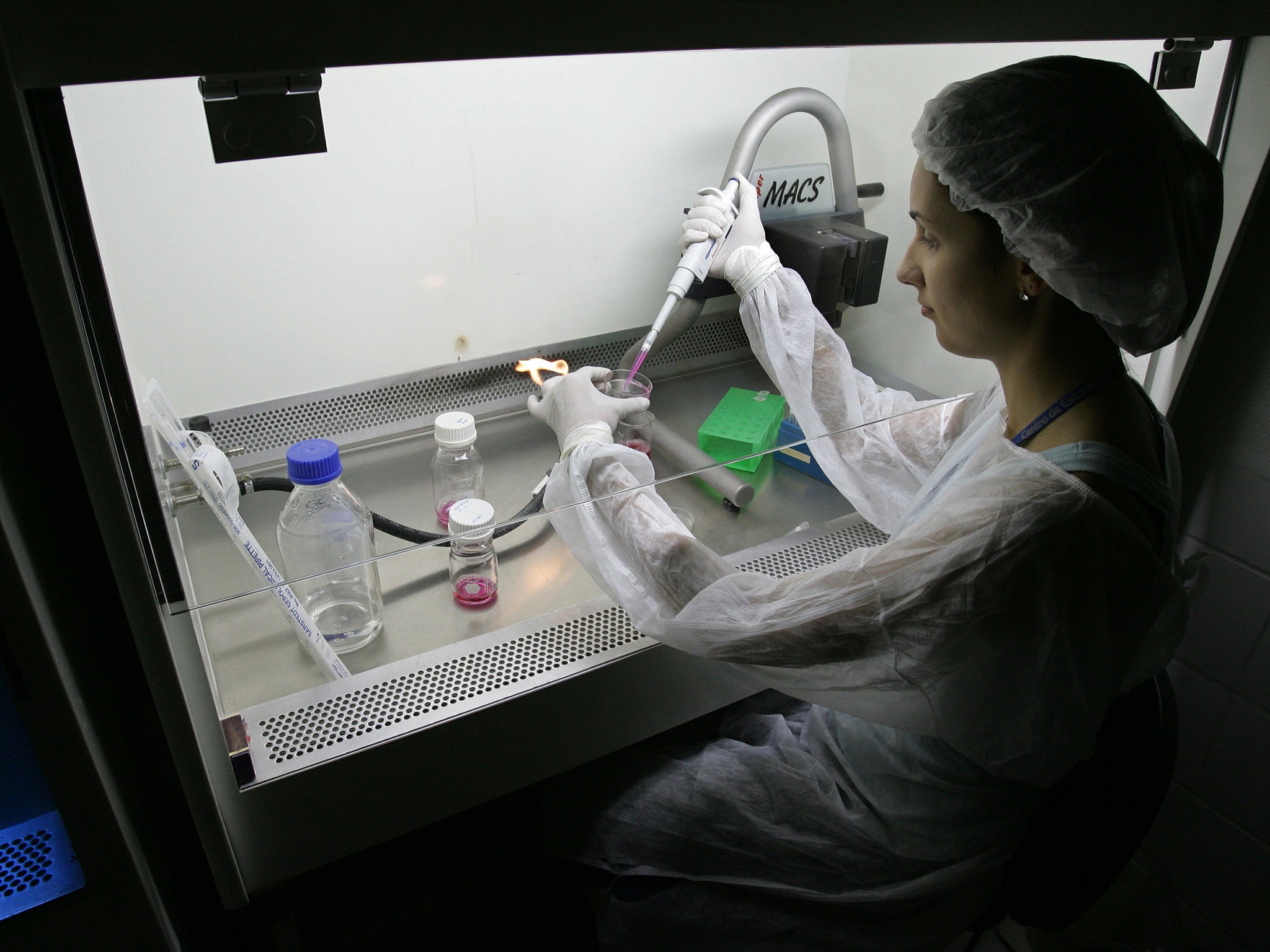American scientists are trying to genetically modify human eggs
Exclusive: The new gene-editing method could eliminate inherited diseases from affected families

American scientists have attempted to modify the DNA of human egg cells using a new gene-editing technique that could eliminate inherited diseases from subsequent generations of affected families, The Independent can reveal.
The research was carried out on ovary cells taken from a woman with inherited ovarian cancer to investigate the possibility of eventually using gene-editing to produce IVF embryos free of the familial disease. The results are yet to be published.
Editing the chromosomes of human eggs or sperm to create genetically modified IVF embryos is illegal in Britain and many other countries because of concerns about safety and the possibility of the technique being used to create genetically enhanced “designer babies”.
However, the development of a simple gene-editing technique which can alter human DNA with extreme precision has raised the prospect of it being used in the future to help couples affected by inherited diseases who would like children free of the family mutations.
Several teams of researchers around the world are believed to be working on ways of modifying the chromosomes of human egg cells with a view to moving towards “germ-line” gene therapy, as the process is called. Germ-line refers to the “germ” cells – sperm and eggs – that pass on genes to future generations.
However, other scientists have called for a moratorium on editing the human germ-line, arguing that it is ethically unacceptable because it is too unpredictable and too risky.
Nevertheless, researchers at Harvard Medical School in Cambridge, Massachusetts, have attempted to use the Crispr (pronounced “Crisper”) gene-editing technique on human ovarian tissue cultured in the lab to see if it might be possible to correct the defective BRAC1 gene involved in inherited breast and ovarian cancer. As ovarian cells develop into egg cells, the research is likely to have involved the altering of some immature egg cells, known as oocytes.
The work was carried out last year by Luhan Yang, a researcher working in the lab of the veteran Harvard geneticist George Church. But the study has not been published in a scientific journal and Dr Yang was unavailable for comment.
Professor Church emphasised that the work was purely experimental. He said that it was carried out on human ovarian cells cultured in a laboratory dish and there was no intention of fertilising any eggs or transplanting them into a woman.
“Almost all post-docs in a cutting-edge lab like mine like to explore what is possible. The experiments were not in human beings. They were in cells in culture,” Professor Church told The Independent.
“Our lab works on human cells of all sorts, and it is quite likely that at some point she [Dr Yang] has worked on human cells that could be the lineage of oocytes. I’m not sure they were proven to be functional oocytes,” he said.
“This is very basic science and there is a very big difference between doing experiments on human cells in culture, which we’ve been doing for many years, and putting them into a human being.”
Since its development only a few years ago, the Crispr technique has been used to correct inherited diseases in laboratory animals as well as mending human genetic defects in non-reproductive human cells grown in the laboratory.
Its precision and apparent safety have astonished researchers, which is why it is now being considered for human germ-line therapy to correct inherited human diseases by genetically modifying eggs, sperm or IVF embryos.
Although the work in his laboratory is pioneering, Professor Church is one of several experts who believe that there should be stricter controls on scientists who may be tempted to use Crispr for human germ-line therapy on IVF embryos.
A comment article in Nature this week by leading academics, including US-based geneticist Fyodor Urnov, a pioneer of gene editing, warns of the danger of moving too fast.
“Genome editing in human embryos using current technologies could have unpredictable effects on future generations. This makes it dangerous and ethically unacceptable,” they write.
“Many oppose germ-line modification on the grounds that permitting even unambiguous therapeutic intervention could start us down a path towards non-therapeutic genetic enhancement. We share these concerns.”
Subscribe to Independent Premium to bookmark this article
Want to bookmark your favourite articles and stories to read or reference later? Start your Independent Premium subscription today.

Join our commenting forum
Join thought-provoking conversations, follow other Independent readers and see their replies